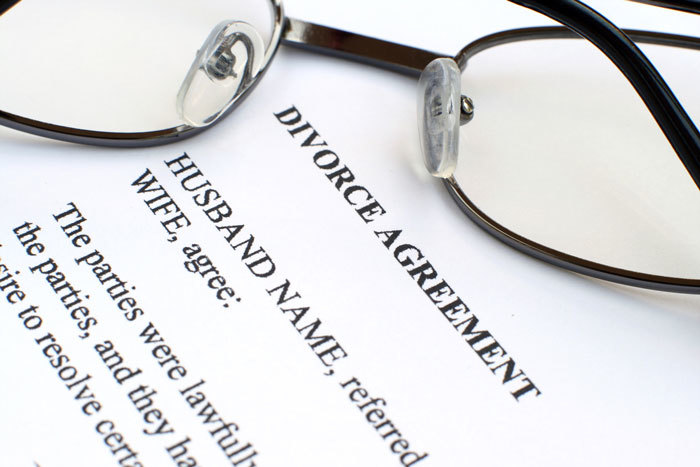This is part three of our three-part series, “Expecting the Unexpected.” You can read part one on catastrophic illness here and part two on chronic illness here.
Estate planning may initially bring to mind the process of outlining the manner in which you will dispose of your assets when you die (hopefully, after you have lived a long, prosperous life). However, your estate plan can also function as a tool to protect you should you face an unexpected situation, such as a catastrophic injury. Unfortunately, catastrophic injuries can happen at any age and when you are the least bit prepared for them.
That said, it can feel strange to sit down and plan out what would happen should a catastrophic injury occur, especially since, in all likelihood, it will not. But, should you be so unlucky (and people are), having a plan can ease the stress of the many crucial decisions you would have to make at that time. Or the decisions your loved ones would have to make on your behalf. An estate plan can also help make accessible the resources you or they would need to navigate the logistics of your care.
First, though, it is important to understand what a catastrophic injury is. Doing so will better enable you to understand why it is you should prepare for one in your estate plan.
What is a catastrophic injury?
Catastrophic injuries are acute injuries most commonly affecting the spine/spinal cord or the brain/skull region. Catastrophic injuries are often a surprise to individuals and their loved ones, and they can completely change the lifestyles of those affected. The National Spinal Cord Injury Statistical Center estimates that 296,000 people in the United States live with a spinal cord injury. In addition, the Centre for Neuro Skills has reported 282,000 hospitalizations related to a brain injury annually.
These injuries can cause sustained disabilities, potentially necessitating individuals to stop working. As a consequence, they and their families must cope with the financial and emotional fallout. Often, catastrophic injuries result in the need for extensive medical treatments and medications. The costs that go along with them can be devastating. Because a catastrophic injury can happen so suddenly and be so expensive, it is very important individuals prepare for the possibility of such injuries in their estate plans.
Why do I need to prepare for a catastrophic injury in my estate plan?
Including plans for catastrophic injuries in your estate plan is essential if you become unable to make difficult decisions. Because you may be physically or mentally unfit to make such choices yourself, these decisions can fall on those closest to you unless you make arrangements while you are able.
Unfortunately, far too many people never plan for these devastating injuries. If the time does come, they then face making overwhelming medical choices while dealing with emotional and physical pain, which can be distracting. And that is if they are lucky because a catastrophic injury can result in incapacitation.
In the same way, preparing for a catastrophic injury can help protect you and your loved ones from financial damage. More specifically, your estate plan can direct you or the people you appoint on how to navigate financial matters in the event of such injury, rather than forcing you (if you are even able) to make these critical decisions on the fly and without much time to consider their implications.
Communicating your wishes in advance in your estate plan allows you and your estate attorney to explore options that include protections for unexpected hardships, including tax strategies. Also, they can advise you on how best to protect your savings from being depleted due to a catastrophic injury and which specific insurance plans you may want to employ.
What estate planning documents will I need to prepare for a catastrophic injury?
Because a will outlines what happens after you die, your estate plan should include the following documents, all of which can provide protection should you become a victim of a catastrophic injury. They are:
- Medical power of attorney. A medical power of attorney (POA) is a legal document authorizing an individual you appoint to make significant decisions about your medical care. These decisions can include treatment options, medications, and end-of-life care.
- Financial power of attorney. Similar to the medical POA, a financial POA authorizes an individual you appoint to make financial decisions on your behalf. Those decisions can concern finances, property, and other financial matters.
- Advanced healthcare directive or living will. These documents allow you to decide if you want your life to be artificially prolonged should you be permanently unconscious or in a permanent, terminal condition (think life support) or if, under certain circumstances, you would prefer to be allowed to pass away naturally.
- HIPAA authorization. Consenting to this document means you enable your family to obtain your otherwise protected medical information, including your medical history, current diagnoses, and physician recommendations. This is a critical step that must not be overlooked because what good is it to authorize someone to make health care decisions for you if they can’t access your health information? If your current plan does not contain a HIPAA authorization and you suffer a catastrophic injury, you may no longer have the capacity to sign such a release, which may frustrate your loved one’s ability to assist you.
Does my existing estate plan necessarily prepare me for a catastrophic injury?
No, not necessarily. It all depends on the documents included in your existing estate plan and what they detail. As mentioned earlier, a will is not going to protect you during life. Instead, you and your estate planning attorney should go over a plan of action specific to you that would prepare you and your loved ones if you suffer a catastrophic injury.
Doing so will allow you to consider multiple options with an attorney who will know what resources you have currently and how you would need to protect them while supporting your life following an injury. Preparing for a catastrophic injury means creating a plan that suits you and your family today. When it comes to estate planning for a catastrophic injury, or estate planning of any kind, one size does not fit all. Also, your estate planning needs could and probably will change over time.
An estate plan is necessary at every stage of life because none of us know what the future may hold. Therefore, you should update your estate plan every two to three years or every time you experience a significant life event such as marriage, divorce, birth, death, and relocation. The only limit on updating your estate plan is once you are mentally unable to do so or have passed away.
Find a Seattle estate planning attorney who can help you prepare for a catastrophic injury.
These scenarios and options may seem overwhelming at first. But that is the very reason why it is so important you find a qualified Seattle estate planning attorney to have by your side, one who can help you through the journey of crafting the plan that best fits your lifestyle, personality, and financial picture.
There is no downside to taking the time now to consider your estate planning options, only upside by way of peace of mind for you and those who may be charged with your care. Or simply those who care about you and would want to see the best for you.
At Elise Buie Family Law, our Seattle team of estate planning attorneys has the skills and experience to put together an estate plan that will fit your individual needs or update your existing one. We understand these issues are unpleasant to think about but are here to listen and address any concerns you may have. Call our office today.











